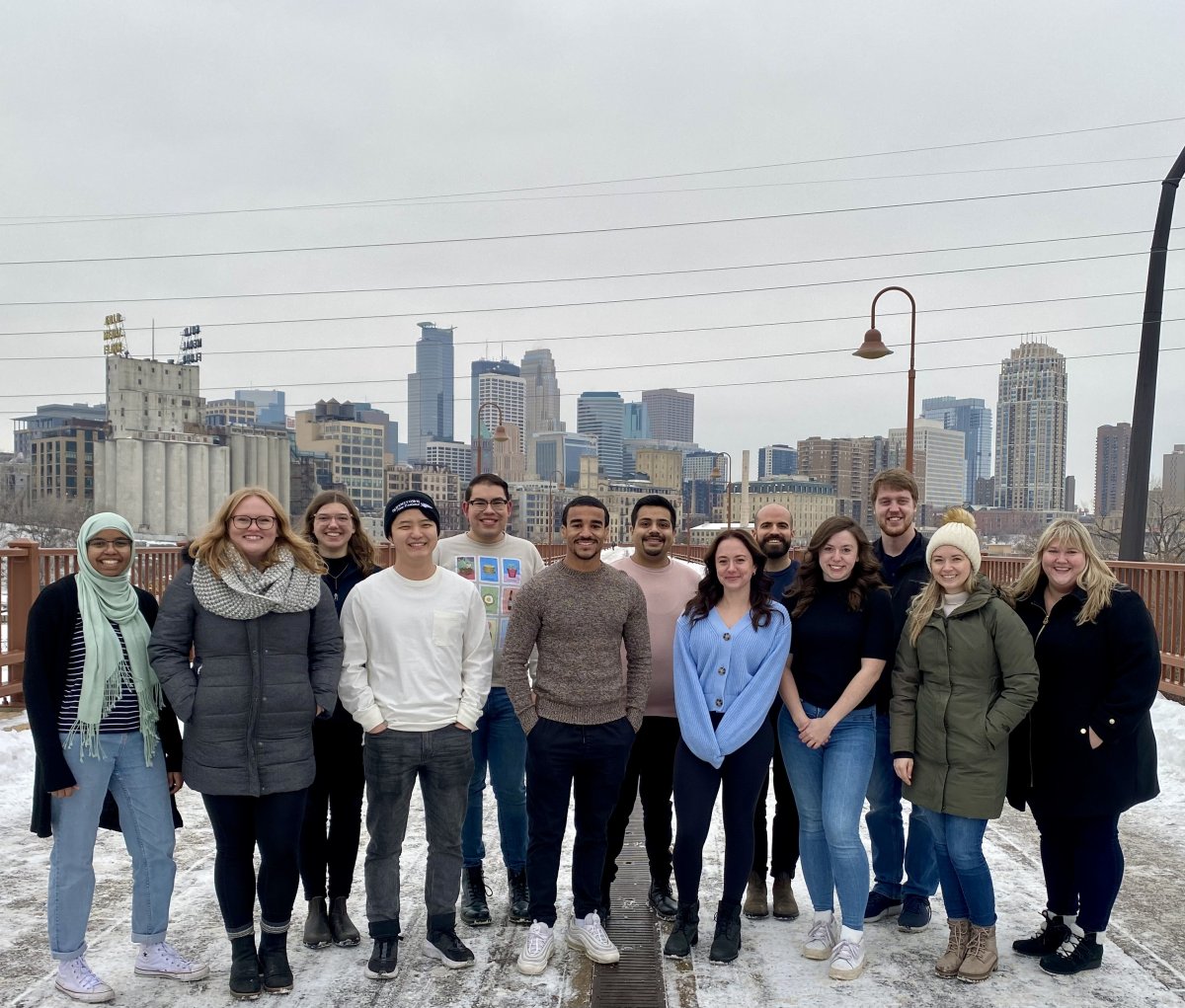Roberts Group awarded $1.9M National Institutes of Health grant for aryne difunctionalization research

MINNEAPOLIS/ ST. PAUL (12/11/2022) – The Roberts Group, led by Assistant Professor Courtney Roberts, has been awarded a Maximizing Investigators' Research Award (MIRA) from the National Institutes of Health (NIH) for their continuing catalysis research in the area of aryne difunctionalization reactivity. The award amount of $1,874,339 will be distributed over 5 years to support the ongoing project here at the University of Minnesota.
Roberts describes the group’s challenge in the grant application: “This project aims to solve numerous challenges in aryne difunctionalization en route to highly decorated arene rings, critical components of most pharmaceuticals. Currently, methods to functionalize arenes in multiple positions require iterative coupling reactions. Difunctionalization of arynes provides an attractive strategy to incorporate multiple functional groups into an arene ring. Unfortunately, these reactions are plagued with problems with accessing starting materials due to multistep syntheses, limited reaction scope, and poor site selectivity for the two possible positions of the triple bond in an aryne. Our group aims to overcome all of these challenges by using transition metal catalysis to expand the scope and utility of aryne difunctionalization.”
The work supported by this grant aims to solve pharmaceutical synthesis problems through development of new aryne precursors, introduction of transition metal catalysts to solve problems with selectivity, and expansion of the scope of available aryne difunctionalization reactions. Most small molecule pharmaceuticals contain multifunctionalized arene rings. Despite their prevalence in medicinally relevant molecules, it is a challenge to synthesize these decorated arene rings in one step.
The NIH review panel for the proposal highlighted the Roberts Group’s “invariably novel” ideas and efforts, noting that the chemistry supported by the grant will “represent transformational work in the area of aryne chemistry, with potential impacts on organic synthesis being immediate and far-reaching.” The National Institute of General Medical Sciences (NIGMS) under the NIH outlines the goal of MIRA grants as being to broaden the impact of NIGMS funding by providing researchers with stability and flexibility that enhances scientific productivity and creates an environment that supports important breakthroughs.
“I am incredibly proud of the team and their ability to come together during the pandemic and generate exciting preliminary data that ultimately led to funding from the NIH. We are looking forward to working together on this project and grateful to the NIH funding,” Roberts said.
Founded in 2019, the Roberts Group is made up of 11 graduate students: Rana Abdu, Brylon Denman, Nick Garcia, Josh Gavin, Sofie Hokanson, Jenna Humke, Sallu Kargbo, Erin Plasek, Chris Seong, Victoria Tafuri, Alex Umanzor; 1 postdoctoral associate Roman Belli; and 1 undergraduate student Lars Anderson. Roberts herself joined the UMN Chemistry faculty as an assistant professor in summer 2019 after completing her postdoctoral research under Melanie Sanford at the University of Michigan and Ph.D. at the University of North Carolina, Chapel Hill. The group centers diversity, inclusivity, and radical candor in everything they do.
Read more: